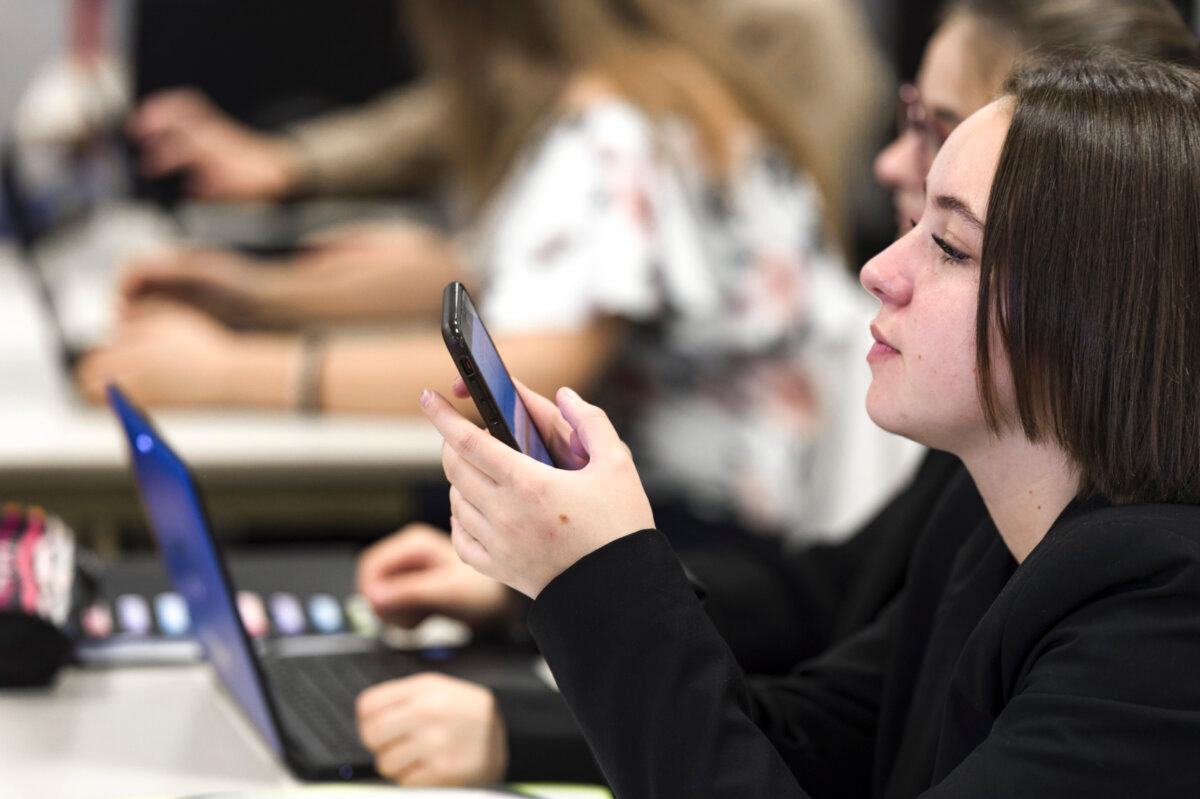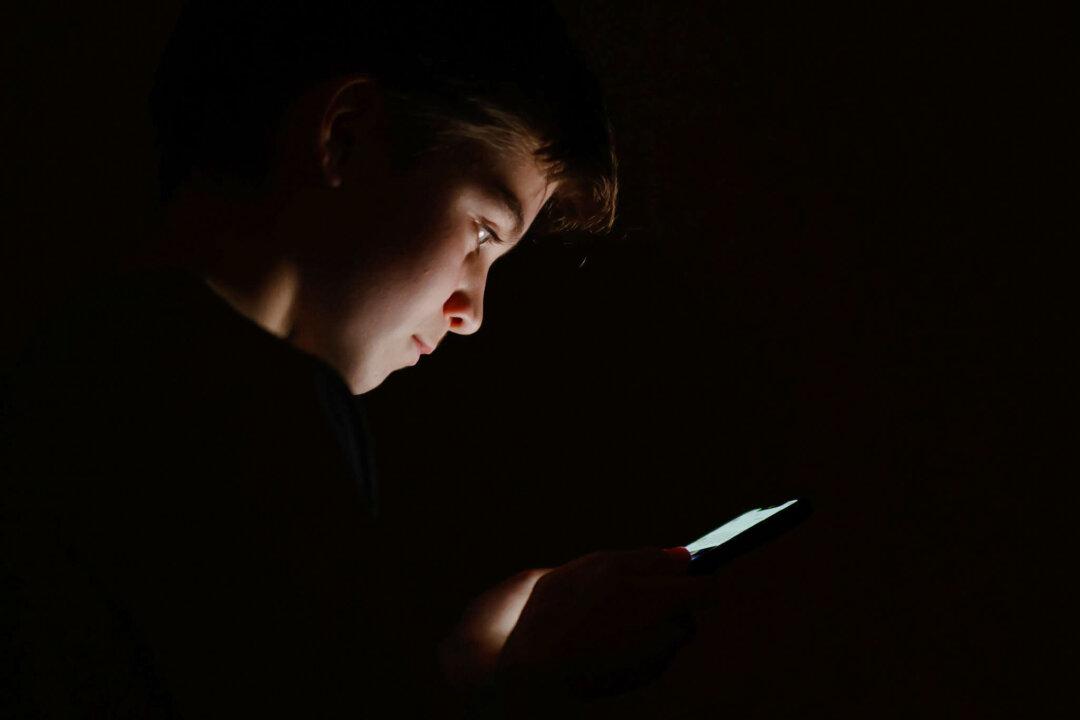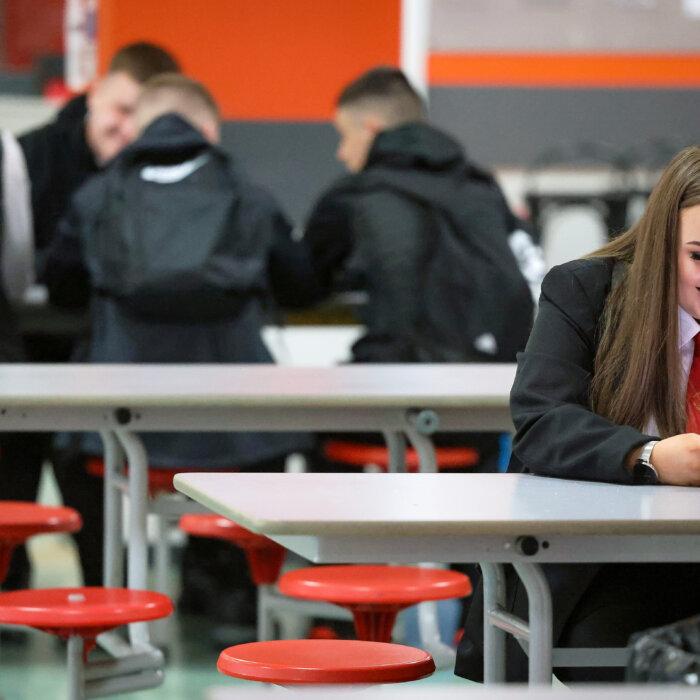A Labour MP will introduce a Private Members’ Bill which if passed would require all schools in England to become smartphone-free, in a bid to help children cut down on their screen time.
MP for Whitehaven and Woking Josh MacAlister will introduce the bill on Wednesday, which would also force companies to raise the age of gaining data consent without parental authority from 13 to 16.
It would also strengthen the powers of Ofcom, the communications regulator, to protect children from apps that are designed to be addictive, and, if necessary, commit the government to review further regulations related to the design, supply, and marketing of smartphones to under-16s.
‘Doom Scrolling’
MacAlister, a former teacher who had led a review into children’s social care for the previous government, said on Tuesday: “The evidence is mounting that children doom scrolling for hours a day is causing widespread harm. We need the equivalent of the ‘seatbelt’ legislation for social media use for children.”The Labour MP said that countries around the world are taking action to limit mobile phone use for youngsters, and “our children risk being left behind. It’s time to have the national debate here in the UK.”
Measures to ban or restrict the use of phones in schools are being brought into force around the world.
Smart Phone Addiction
Secretary of State for Health and Social Care Wes Streeting signalled his support for the measures, saying in a post on social media platform X, “Given the impact of smartphone use and addiction on the mental health of children and young people and the concerns from parents, this is a really timely debate.”The measures also have cross-bench support, with Conservative MP and former Education Secretary Kit Malthouse saying: “The growing evidence of the impact of smartphones on kids is deeply alarming.
“So being clear about our expectations from providers and regulators, and their duties towards our children, has to be a step in the right direction, and I’m pleased to support a Bill that does exactly that.”

Removing Autonomy From Schools
Responding to the proposals, a government spokesperson said that the vast majority of schools are already handling the presence of smartphones effectively, including with bans, and that “legislating for an outright ban would simply remove the autonomy from school leaders who know their pupils and their communities best.”“The Online Safety Act will introduce strong safeguards for children, preventing them from accessing harmful and age-inappropriate content. This will include requiring companies to check the age of children so that parents can have peace of mind about the safety of their children online,” the spokesperson added.
A Number 10 spokesman also indicated that the government might not support the proposals, saying, “We don’t have plans to legislate in that particular area.”
However, he added the government would not “get ahead of parliamentary process,” saying, “We haven’t seen the bill yet, but the government will set out its position as usual at the second reading.”
UsForThem’s Arabella Skinner said: “It’s a very unwieldy [law]—it’s enormous ... And it causes big issues around the freedom of speech problems that we all are aware of. But it doesn’t solve the issue of protecting our children. It’s not strong enough.”
Private Members’ Bills are public bills introduced by MPs and Lords who are not government ministers. While only a minority of them become law, they often raise awareness around an issue.
MPs are expected to debate the bill in the new year.







